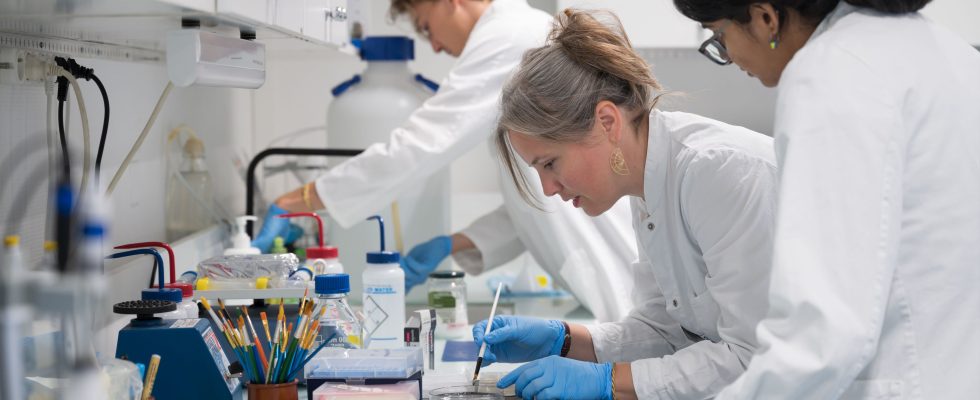More than a quarter of French people will at one time or another be confronted with pathological anxiety during their lives. However, today there is still no specific treatment for these often very disabling disorders. Doctors usually prescribe antidepressants, but relapses are common when stopping the tablets. However, it is difficult to imagine doing better without understanding the mechanisms that disrupt the machinery of our brain, which are still very poorly understood. This is the ambition of Anne Beyeler, a Franco-Swiss neurobiologist based at the Magendie neurocenter in Bordeaux, and passionate about the biology of emotions.
By delving into the brain’s “microcircuitry” at the neuronal level, this researcher hopes to identify the different structures involved in the control of anxiety, and to discover why certain individuals are more prone to it than others. Very fundamental research, carried out in the laboratory on animal models, but which could perhaps lead to targeted and curative treatments. For this project, the young woman has just obtained the support of the Bettencourt-Schueller Foundation, whose jury selects seven mid-career researchers every year and provides them with 2.5 million euros over five years.
“Our approach is based on observations made in humans using functional imaging. It has been shown that different brain regions, the insular cortex and the amygdala, are overactivated in anxious patients compared to a population of healthy individuals” , she explains. But the resolution of imaging tools is not fine enough to push investigations to the cellular level and identify the neurons involved. During initial work carried out on animals with a normal level of anxiety, his team had already been able to show that by reducing the activity of the insular cortex, we reduced the level of anxiety in mice placed in a stressful situation.
The hope of more targeted treatments
To go further, the researcher will use an animal model of pathological anxiety, by limiting access to nesting and litter resources in mice aged 2 to 10 days, which places them in a condition of stress. “Our hypothesis is that certain serotonin circuits will be weakened in vulnerable individuals,” explains the researcher. If this is the case, however, it would not only be the “wiring” between the neurons that would be involved, but also the intensity of the signal transmitted from one part of the brain to another. By being altered by stress, these circuits induce anxiety.
Anatomical and molecular engineering techniques will allow his team to test this idea. Either through imaging, thanks to genetic manipulations making certain neurons more or less fluorescent depending on their activity. Either by activating or inhibiting neurons. “The goal is to look at how these circuits can be dysregulated and induce pathological behaviors,” she continues.
If her hypothesis is verified, the scientist then imagines trying to mimic the characteristics of resilience in vulnerable animals to make them resilient in turn. “This would be a proof of concept for possible translational research in humans,” she hopes. While the pharmaceutical industry has for the moment largely withdrawn from the field of psychiatry, basic researchers are not giving up. Enough to give patients hope that one day new treatments will arrive on the market.
